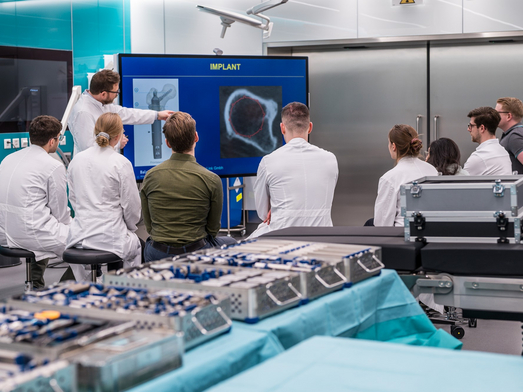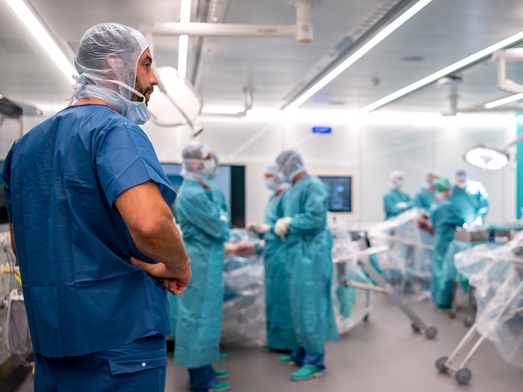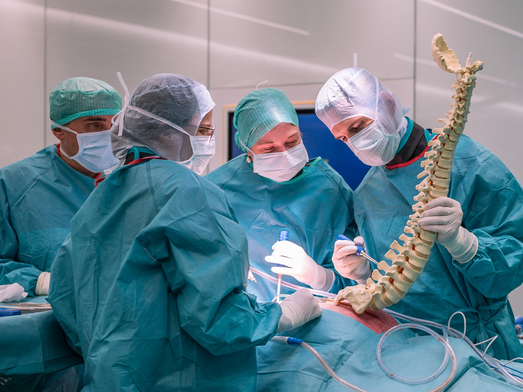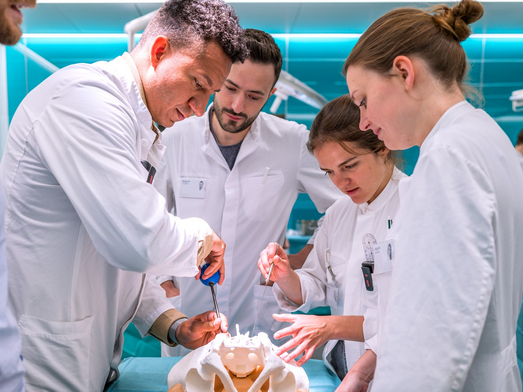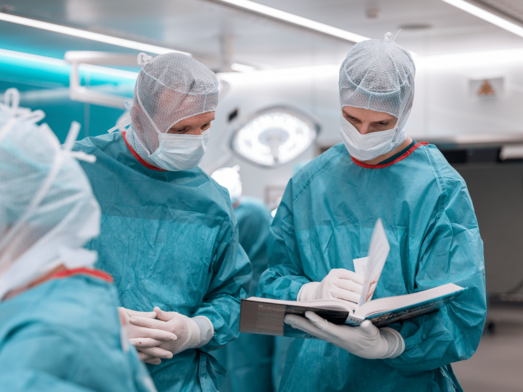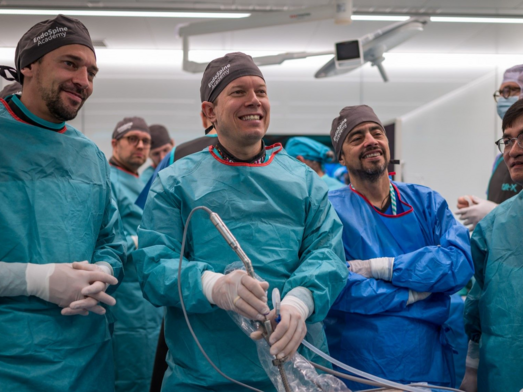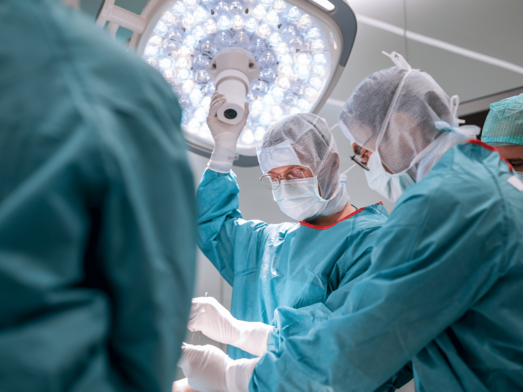In just one year, OR-X has redefined surgical training by creating a realistic OR environment that combines cutting-edge technology, hands-on practice, and an unwavering commitment to surgical excellence. Surgeons here are not only refining their skills with high-quality models and real specimens but are also engaging in a collaborative space that fosters continual growth and innovation. In our interview, OR-X initiator and founder Prof. Dr. med. Mazda Farshad shares insights into the milestones of our first year, the instructive trainings that have emerged, and his personal vision for the future of surgical training at our translational center.
A First Year of Surgical Training in Review with Prof. Farshad
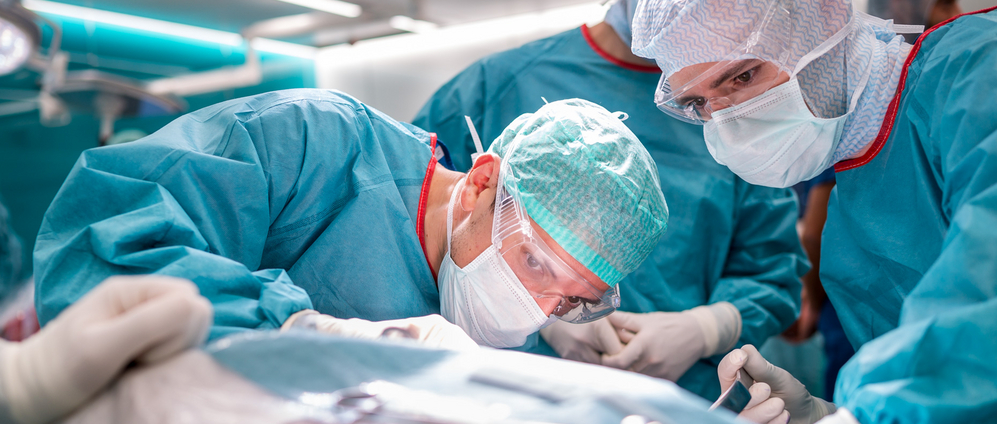
5 insights from our Initiator & Founder

How did the OR-X improve the education of surgeons in its first year?
Prof. Dr. med. Mazda Farshad: In its first year, the OR-X has greatly enhanced surgical training by offering surgeons nearly weekly opportunities to refine their skills in a safe, controlled environment. With access to high-quality anatomical models and human specimens, they benefit from a steeper learning curve without any risk to patient safety. This hands-on approach not only allows them to build confidence and master critical techniques but also bridges the gap between theoretical knowledge and practical application. Surgeons can make mistakes, ask questions, and perfect their methods - all essential steps that prepare them more effectively for real-world clinical situations.
How have you witnessed the learning experience and reactions of young surgeons during courses and training?
Prof. Dr. med. Mazda Farshad: I have consistently received positive feedback from surgeons who worked and trained at the OR-X, particularly from resident surgeons who make intensive use of our facilities. It's been inspiring to see how engaged they are - often, they don’t want to leave, even late in the evening, as they’re so eager to learn and improve their surgical skills. Experienced surgeons also appreciate the opportunity to refine their techniques and mentor the next generation in this dedicated space. This unique environment fosters a collaborative learning culture where both young and seasoned surgeons feel motivated to push their limits, exchange knowledge, and fully immerse themselves in advancing surgical expertise.
What events and successes from the first year are personal highlights for you?
Prof. Dr. med. Mazda Farshad: Our first year at the OR-X was filled with memorable highlights, including hosting several international events in our facility. Notably, we had the privilege of organizing the Endospine Academy and the complex Spine Symposium, where we welcomed renowned international faculty and participants from across the globe. These events make us incredibly proud, as they affirm OR-X’s evolution into a dynamic international center for translational science in surgery. Seeing our vision come to life as a hub for knowledge exchange and surgical innovation on a global scale is truly rewarding.
How will the training concept and opportunities continue to develop in the coming years?
Prof. Dr. med. Mazda Farshad: Our training concept at the OR-X is set to evolve significantly in the coming years. We work closely with research groups to explore innovative training methods, with a strong focus on digital advancements such as holographic technology for immersive surgical training experiences. Additionally, we are expanding access to our anatomical and surgical courses for orthopedic residents, which will be open to participants from across Switzerland starting next year. This commitment to both technological innovation and accessibility reflects our goal of continuously enhancing surgical education and providing cutting-edge training opportunities for surgeons at all levels.
What personal wish do you have for the future of the OR-X as a state-of-the-art surgical training center?
Prof. Dr. med. Mazda Farshad: My personal wish for the future of the OR-X is that our infrastructure continues to function as a state-of-the-art translational center for surgery. This entails leveraging the challenges we face in patient treatment to drive our research initiatives. The insights gained from this research should seamlessly integrate into our surgical training programs, ultimately enhancing the quality of patient care. It is crucial that all activities at the OR-X are closely aligned with the goal of improving patient outcomes, whether through surgical practice, research, or skills training.
